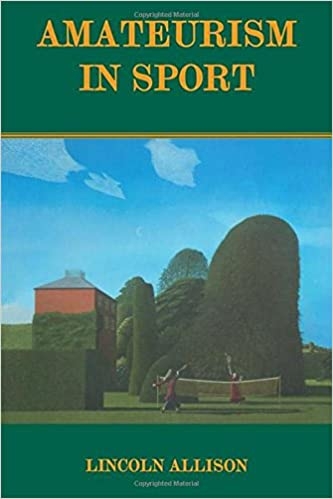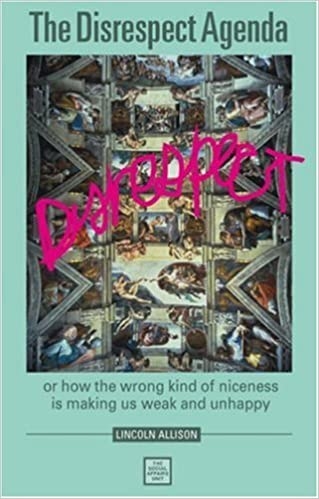Just last week, an article from England landed in my inbox. I was struck immediately by the author’s view as to who should and who should not call him/herself a writer.
It’s a thought-provoking article because it is quite contrary to the generally held view here, in the US, that almost anyone who writes or attempts to write anything is a writer. Or, as one of my favorite author-bloggers, Anne R. Allen, states in this post: “If you go off by yourself at regular intervals to create stuff using words, you’re a writer.”

Not so, says English author-essayist, Lincoln Allison, who also has some unusual advice (below) for writers suffering from writer’s block.
Guest Post By Lincoln Allison: HOW TO BE A WRITER (OR NOT)
 I suppose I am a writer as there are fourteen different books with my name on the cover and I’ve also published over a thousand articles
I suppose I am a writer as there are fourteen different books with my name on the cover and I’ve also published over a thousand articles
But I don’t like the term for all sorts of reasons. We all write – or nearly all of us – and there are countless Twitter users who have more followers than I have readers. Then there’s the business of saying, “I’m a writer” which sounds very pretentious and excites both irritation and envy.
According to one US survey 81% of the population want or intend to write a book so having actually written one can put up barriers. They are surely likely to respond, “Well I’ve never heard of you” or “I was in Waterstone’s the other day and I couldn’t see any sign of your books”.
So Many Books
 Fact: there were more than a quarter of a million books published in this country (U.K) last year and you are likely to have heard of a fraction of one per cent of their authors, probably the same fraction that you would see displayed in Waterstone’s. There’s also the assumption that if you say you’re a writer it will be assumed you have written a novel whereas the majority of books are not novels.
Fact: there were more than a quarter of a million books published in this country (U.K) last year and you are likely to have heard of a fraction of one per cent of their authors, probably the same fraction that you would see displayed in Waterstone’s. There’s also the assumption that if you say you’re a writer it will be assumed you have written a novel whereas the majority of books are not novels.
My preference for self-description is “essayist” which sounds more obscure and old-fashioned.
Do You Make A Living From Writing?
But the main reason for not saying I am a writer is that I don’t make a living out of it. Actually, hardly anyone does: the Author’s Licensing and Collecting Society has 90,000 members and reports that two thirds of these make less than £4000 (about $5,300) a year from writing.
 And it’s getting worse. For most authors advances have disappeared so you don’t get a penny until the book actually sells.
And it’s getting worse. For most authors advances have disappeared so you don’t get a penny until the book actually sells.
I can also report that the kind of fees I get for articles are pretty much the same as they were in the 1980s despite decades of inflation.
The underlying reason for this is, of course, the internet which offers an almost infinite range of sources of information and opinion and reduces the sales of individual books as well as of magazines and newspapers in the vast majority of cases.
The distribution of income from writing is structured much like that from sport or music or acting: the structure is a pyramid with a tiny handful of people at the top making enormous incomes and most of the rest not close to making a living.
We have returned to eighteenth century conditions. Back then you had your own pamphlets printed. Now you set up your own blog and see what comes of it. In between, if you could persuade a publisher to print your book and an editor to publish your articles there was at least a half-decent income to be had. That is no longer the case.
Hence, there are, in my opinion, some eternal pieces of good advice to would-be writers:
IF YOU’VE GOT WRITERS BLOCK: GIVE UP

I’ve spent my life as (in no particular order) entertainments officer for three sons (and latterly six grandchildren), gardener, teacher, husband, cricket captain, Burnley fan, traveller, tennis player. By the time I ever got round to writing I knew exactly what I wanted to say: it was in my head and I just wrote it out.
I had no time for perfectionism. You say it as well as you can on the day and move on. I have watched perfectionists at work; their levels of production tend to be low and are sometimes non- existent.
I think I should also admit that if you had, say, written three highly successful detective stories with the same hero and your publisher offered you a ludicrously generous contract for a fourth whereas you really wanted to do something completely different then I could imagine a desperate sense of blockage occurring.
Don’t Quit Your Day Job
In my early thirties I did think about giving up the day job as a lecturer (professor) in the Politics Department at the University of Warwick. I had published two books and the most recent had been widely and favorably reviewed. I had a regular slot in a well known magazine. So, why not just be a “writer?”
Two well known people, one a respected editor, the other “the most sought after documentary maker in British television” advised me against this. Both seemed mildly obsessed with my pension rights and I learned that pensions are like girlfriends and boyfriends: If you’ve got one you tend to take them for granted, but if you haven’t the lack can be something of an obsession.
Giving up would have been a catastrophic miscalculation. In fact the terms of trade were beginning to move heavily against freelance writers and the publishers of my second book went bankrupt putting an end to that particular income stream.
So I was always able to treat my writing income as pocket money (mad-money) and, as pocket money, it could be pretty good. Royalties themselves were usually disappointing, but books, strange as it may seem, can produce income for the author much greater than the book’s own royalties.
For example, I wrote a book on the idea of amateurism which has never sold many copies, but it was a Times book of the week, is often quoted and I have been paid four figure sums to talk about the subject on several occasions. But it’s still only nice pocket money and I couldn’t live on it.
Do You Really Want To Be A Writer?
In any case, one should consider the possibility of the dream coming true:
You are still young, you write your book; they love it, you win a major prize, film and television rights are sold, your income is in the top 1% . . .
And then what?
Do you really want to spend your life having to write, signing volumes in American bookshops, and talking about your work to interviewers who haven’t actually read it?
It doesn’t sound that wonderful a way of life –and most of the successful authors I’ve known didn’t seem particularly happy.
The above article was originally published at greater length in The Old Lancastrian Newsletter.
Lincoln Allison is the Emeritus Reader In Politics at the University of Warwick and a published author/ writer/essayist— and blogger.
In the interests of full disclosure, he was my professor at the University of Warwick in the 1970s (and also my husband for a couple of years back then.)
Personally, if you take the time and put in the effort to see any type of book through to completion, I think you can call yourself whatever you want to. You’ve earned it. Society sometimes makes too much out of labels.
The comments on the distribution of income were quite interesting too. Just recently I tried to buy a music album and found the labyrinth process of that industry unbelievably complex. There seems to be no credible way in which the actual musician can be paid for their work. You can stream their songs online, but have no way to download the songs by paying for them. It’s absurd.
Of course, you can call yourself a writer, just like Anne R. Allen says. Although probably that’s not what you’re going to say on your tax return unless you make/or have made a living from writing.
As for how musicians earn their money, I dare say you may be right, but haven’t thought about it. All my music is from the time when one bought CDs and then transferred them to iPods!
Same here. I must have like 400 CDs and haven’t really bought anything new in years. Surprising how much that industry has changed though. I wonder if the same changes will one day come to publishing?
Interesting that Lincoln completely ignores the “author” label, which seems apt for anyone who has published books and is more specific than the generic “writer.” Meanwhile, I’d eschew “essayist” in favor of “scrivener,” just because it appeals to my Dickensian sense of what it means to write and is less limiting. But what the hey–as Tommy Smothers used to say, “Words are just playthings to me.”
I think the delineation between author and writer is this: An author is the published/self-published author of a number of works or a single work. It denotes an activity undertaken and accomplished, not an ongoing work description.
Writer, to me means, someone who writes as their principal daily activity. As in the intro on my Welcome Page where I say “I’ve been a writer all my life,” by which I mean, and which I explain as: I have earned my living by writing (mostly) all my life (mostly as a journalist, then an attorney.)
Actually, the only time I wasn’t earning a living as a writer was when I was working on my first two (eventually traditionally published novels) and I was lucky enough to be a stay-at-home mother, and I didn’t need to earn a living. If anyone had asked me at the time, what is your occupation, I would have said: “Mainly, right now, I’m a stay-at-home Mom.” Because God forbid you tell someone you’re working on a novel. LOL!!!!